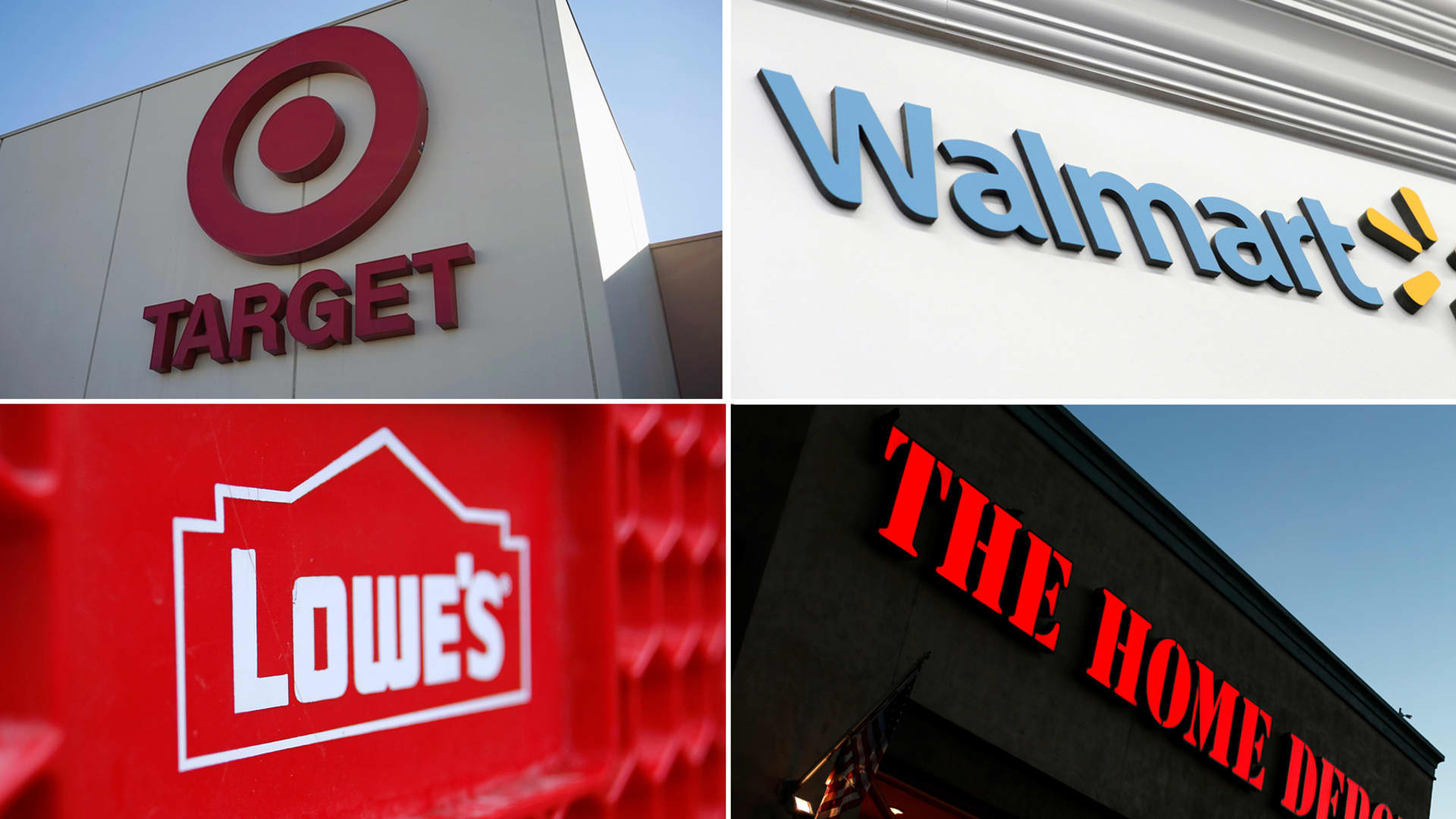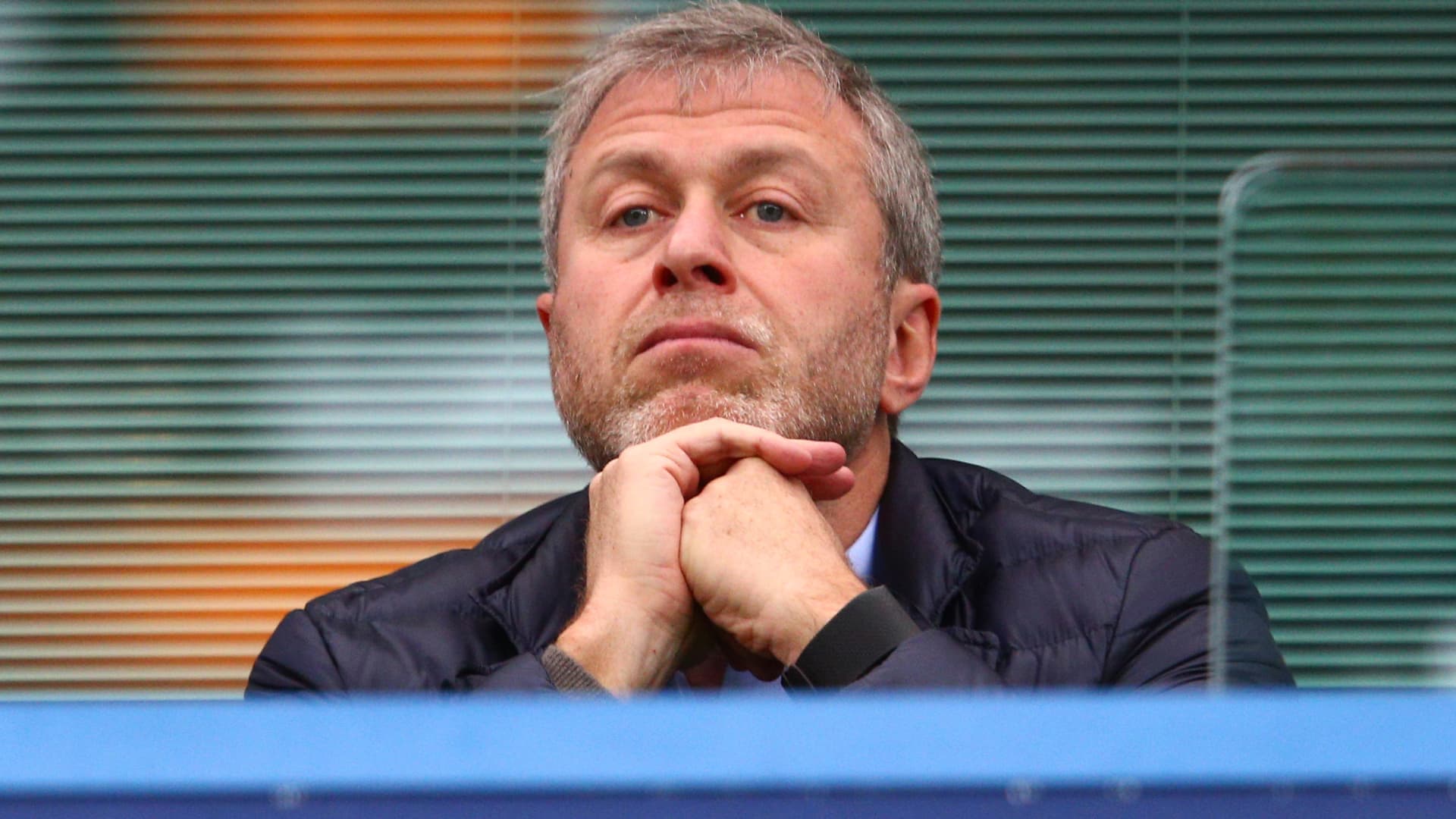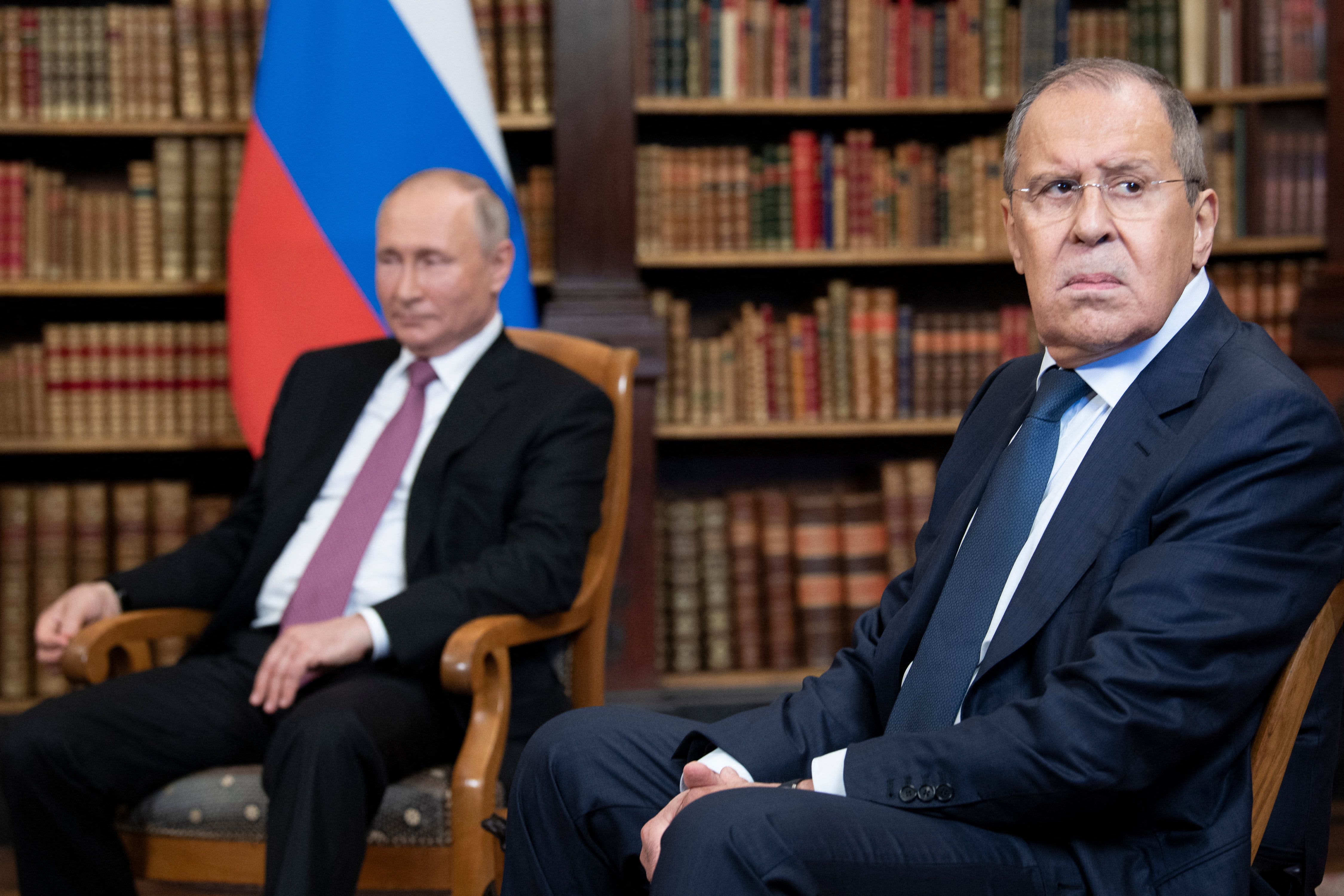Google is having productive talks with the EU on A.I. regulation, cloud boss says
Google has held "productive" talks with EU regulators about bringing in regulations for artificial intelligence, the company's head of cloud told CNBC.
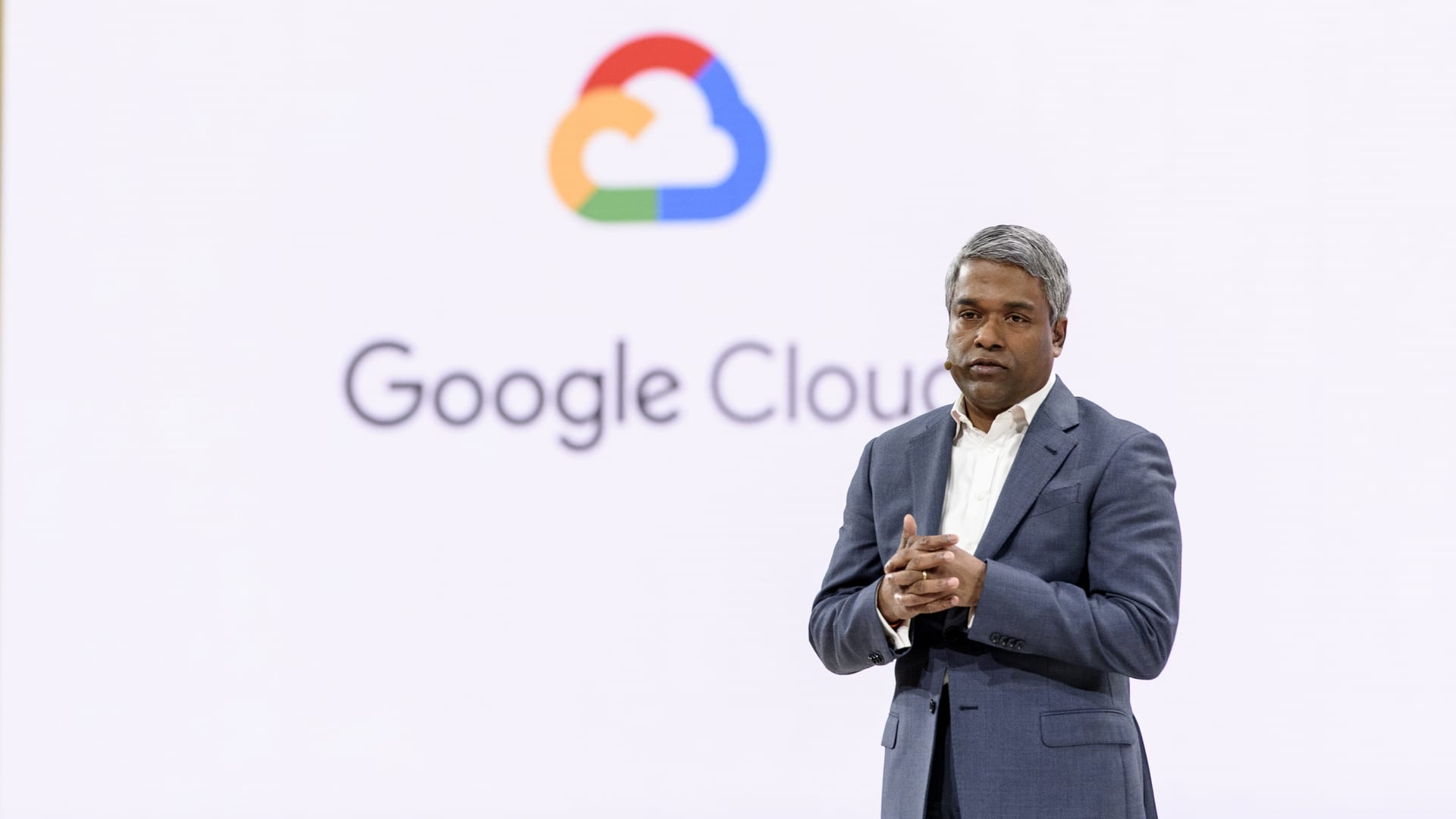
Thomas Kurian, CEO of Google Cloud, speaks at a cloud computing conference held by the company in 2019.
Michael Short | Bloomberg | Getty Images
LONDON — Google is having productive early conversations with regulators in the European Union about the bloc's groundbreaking artificial intelligence regulations and how it and other companies can build AI safely and responsibly, the head of the company's cloud computing division told CNBC.
The internet search pioneer is working on tools to address a number of the bloc's worries surrounding AI — including the concern it may become harder to distinguish between content that's been generated by humans and that which has been produced by AI.
"We're having productive conversations with the EU government. Because we do want to find a path forward," Thomas Kurian said in an interview, speaking with CNBC exclusively from the company's office in London.
"These technologies have risk, but they also have enormous capability that generate true value for people."
Kurian said that Google is working on technologies to ensure that people can distinguish between human and AI generated content. The company unveiled a "watermarking" solution that labels AI-generated images at its I/O event last month.
It hints at how Google and other major tech companies are working on means of bringing private sector-driven oversight to AI ahead of formal regulations on the technology.
AI systems are evolving at a breakneck pace, with tools like ChatGPT and Stability Diffusion able to produce things that extend beyond the possibilities of past iterations of the technology. ChatGPT and tools like it are increasingly being used by computer programmers as companions to help them generate code, for example.
A key concern from EU policymakers and regulators further afield, though, is that generative AI models have lowered the barrier to mass production of content based on copyright-infringing material, and could harm artists and other creative professionals who rely on royalties to make money. Generative AI models are trained on huge sets of publicly available internet data, much of which is copyright-protected.
Earlier this month, members of the European Parliament approved legislation aimed at bringing oversight to AI deployment in the bloc. The law, known as the EU AI Act, includes provisions to ensure the training data for generative AI tools doesn't violate copyright laws.
"We have lots of European customers building generative AI apps using our platform," Kurian said. "We continue to work with the EU government to make sure that we understand their concerns."
"We are providing tools, for example, to recognize if the content was generated by a model. And that is equally important as saying copyright is important, because if you can't tell what was generated by a human or what was generated by a model, you wouldn't be able to enforce it."
AI has become a key battleground in the global tech industry as companies compete for a leading role in developing the technology — particularly generative AI, which can generate new content from user prompts. What generative AI is capable of, from producing music lyrics to generating code, has wowed academics and boardrooms.
But it has also led to worries around job displacement, misinformation, and bias.
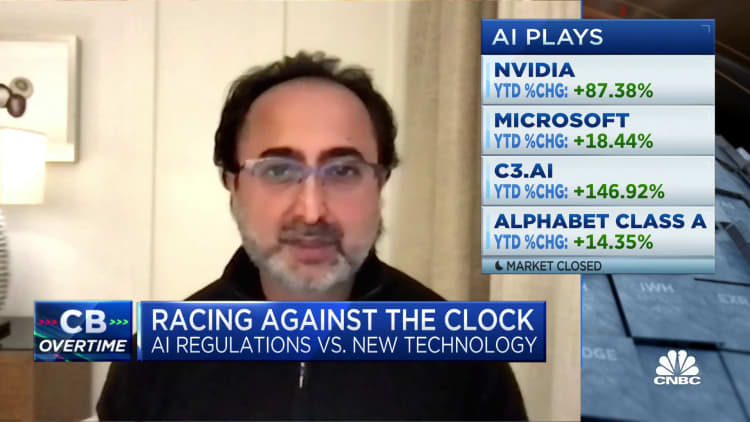
Several top researchers and employees within Google's own ranks have expressed concern with how quickly the pace of AI is moving.
Google employees dubbed the company's announcement of Bard, its generative AI chatbot to rival Microsoft-backed OpenAI's ChatGPT, as "rushed," "botched," and "un-Googley" in messages on the internal forum Memegen, for example.
Several former high-profile researchers at Google have also sounded the alarm on the company's handling of AI and what they say is a lack of attention to the ethical development of such technology.
They include Timnit Gebru, the former co-lead of Google's ethical AI team, after raising alarm about the company's internal guidelines on AI ethics, and Geoffrey Hinton, the machine learning pioneer known as the "Godfather of AI," who left the company recently due to concerns its aggressive push into AI was getting out of control.
To that end, Google's Kurian wants global regulators to know it's not afraid of welcoming regulation.
"We have said quite widely that we welcome regulation," Kurian told CNBC. "We do think these technologies are powerful enough, they need to be regulated in a responsible way, and we are working with governments in the European Union, United Kingdom and in many other countries to ensure they are adopted in the right way."
Elsewhere in the global rush to regulate AI, the U.K. has introduced a framework of AI principles for regulators to enforce themselves rather than write into law its own formal regulations. Stateside, President Joe Biden's administration and various U.S. government agencies have also proposed frameworks for regulating AI.
The key gripe among tech industry insiders, however, is that regulators aren't the fastest movers when it comes to responding to innovative new technologies. This is why many companies are coming up with their own approaches for introducing guardrails around AI, instead of waiting for proper laws to come through.
WATCH: A.I. is not in a hype cycle, it's 'transformational technology,' says Wedbush Securities' Dan Ives
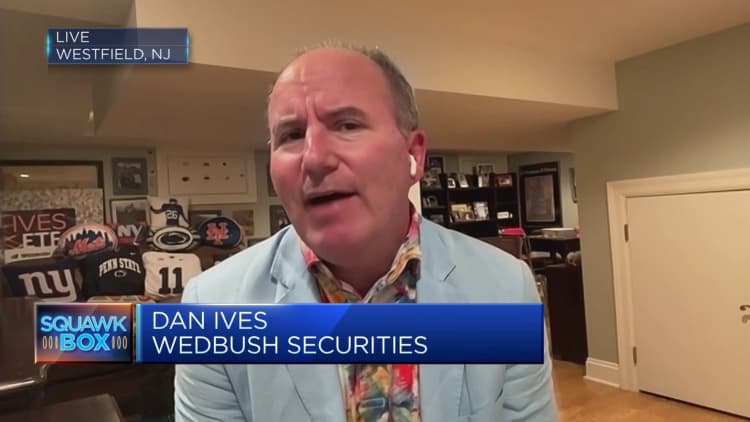

 Tekef
Tekef 








